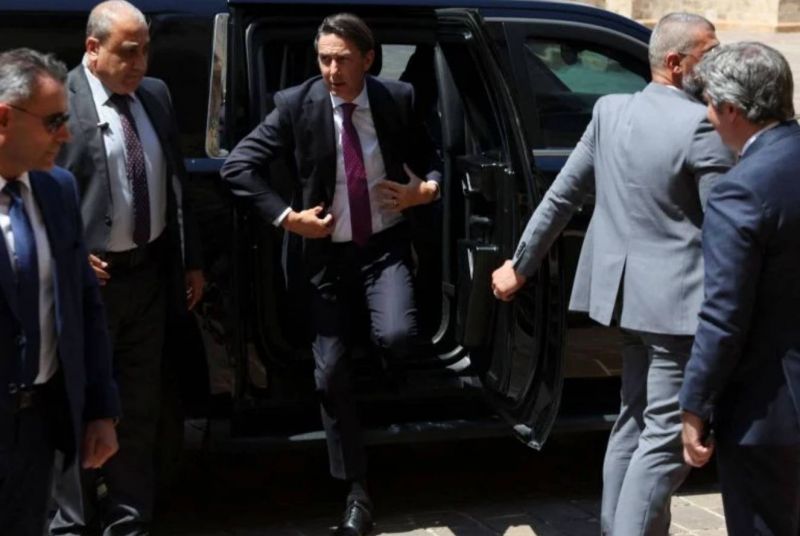
The American emissary Amos Hochstein upon his arrival at the Grand Serail in Beirut, Wednesday August 30, 2023 (Credit: Mohammad Azakir/Reuters)
Special US envoy Amos Hochstein began his official two-day visit to Beirut this Wednesday.
This visit is linked to the finalization of the post-agreement phase on the delimitation of the maritime border between Lebanon and Israel. The maritime border dossier was concluded in October 2022 after months of arduous negotiations, of which Hochstein was the principal mediator.
According to Lebanese and Western diplomatic sources, all of which requested anonymity due to the sensitivity of the subject, Mr. Hochstein's main objective is to emphasize the importance of maintaining stability along the border between the two countries. The directive is to avert military escalation, especially after the exchange of threats between Israeli officials and Hezbollah. Maintaining stability at the border is of paramount importance to Washington, especially with the commencement of exploration in Block 9.
Amos Hochstein's visit includes meetings scheduled with Parliament Speaker Nabih Berri, outgoing Prime Minister Nagib Mikati, Energy Minister Walid Fayad and Army Commander Joseph Aoun.
Hochstein may also conduct a tour along the southern border before heading to Israel.
Discussions with the diplomat have focused on four main points.
The first involves the renewal of the US’s commitment to facilitate extraction operations in Block 9. Lebanon sought US support during the finalization of the maritime agreement to ensure the process runs unimpeded.
The second point pertains to the issue of importing gas from Egypt in line with the World Bank’s standards, a matter that remains pending.
The third point relates to the security situation in South Lebanon.
The fourth and perhaps most crucial point, aims to definitively establish the Lebanese-Israeli land border and resolve related tensions. Lebanon contends that its borders were demarcated in 1923 through the Paulet-Newcombe agreement. "We are not talking about border delimitation but rather a solution to the disputed points, which remain seven out of the original thirteen,"a high-ranking Lebanese official clarified. The central focus of this issue is point B1, the last land point in Lebanon facing the sea.
During the demarcation of the maritime border, point B1 was left unresolved, and a 5-kilometer area at sea remains un-delineated.
Lebanon claims favor of point B1.
"All the contentious points can be resolved. Efforts are currently underway to address the issue of point B1," confirmed a Western diplomatic source.
"Lebanese officials have requested Mr. Hochstein to persuade the Israelis to withdraw from the vicinity of point B1 and to acknowledge its Lebanese character," continued the source.
Echoing this sentiment, one high ranking Lebanese official stated that "If the Israelis recognize Lebanon's right to this point, the entire issue could be resolved."